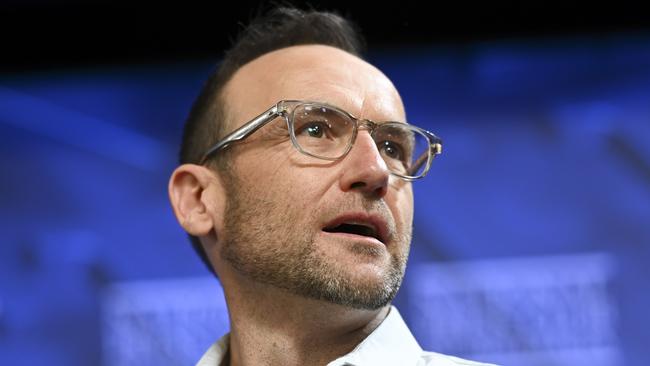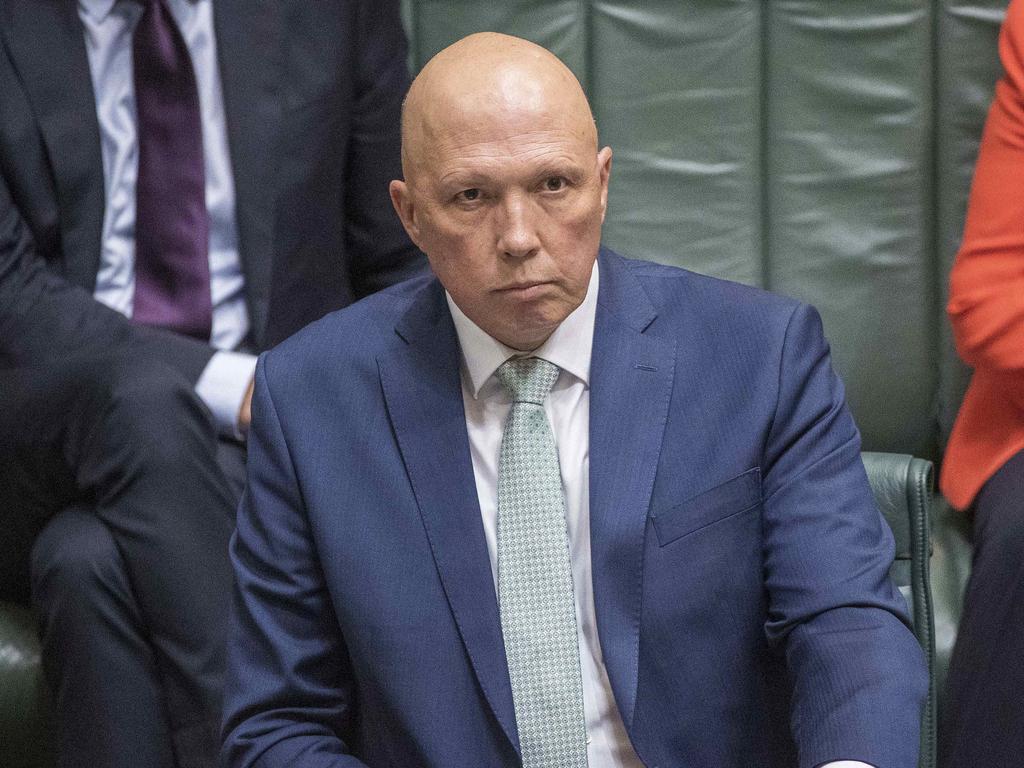
By accepting the Greens’ vote, Labor has again entered a pact that drags the party to the left and sharpens the divide with the coalition. The Greens are not happy with Labor’s 43 per cent target but have signalled they will wave it through. The reality is that no domestic target will ever make a difference to global temperatures or future local floods or droughts.
But by giving Labor a win, the Greens have set out their big agenda to tamper with the government to get its way on industry, environment, social justice and tax.
Every budget item will be screened by the Greens for what it does to shut down future coal and gas.
They will insist on a climate trigger to sit over Labor’s plans to overhaul environmental legislation as recommended by former competition tsar Graeme Samuel. Labor’s signature plan to strengthen the safeguards mechanism will be a lever for the Greens to extract more.
If Labor wants to host a UNFCCC climate conference with Pacific Island nations, it will have to find a way to satisfy the price of entry being articulated by the Greens, the shutting down of two of Australia’s biggest export industries, coal and gas.
The Greens have achieved significant concessions from Labor. The 43 per cent target is a floor, not a ceiling. It will be harder for government agencies to fund fossil-fuel projects here and overseas. Additional limits will be put on other agencies, including Infrastructure Australia and the Northern Australia Development Fund.
Anthony Albanese is celebrating the win in parliament but must now deal with the reality of a legislated target. Things are going badly in other places, including Britain, where legislation on this issue has only sharpened the divide between the ruling class and the masses.
Legislated targets make it very difficult to change tack.
Polls in Britain shows six in 10 of those who voted for the Tories at the 2019 election would support a climate policy rethink. The energy crisis risks sparking civil disobedience. A new movement, the Don’t Pay campaign, is urging people to join a “mass non-payment strike” when the energy price cap is raised in October. Analogies are being drawn with the Poll Tax campaign that brought down Margaret Thatcher. Despite the pain, global coal use and greenhouse gas emissions continue to rise.
Back home, the Greens’ goal is to worsen the energy crisis by punishing producers with penalties, bans and red tape. Billionaire barons will be forced to pay more tax for measures to please the masses.
Displaced coal and gas workers will be out of work but still paid from a government transition fund. What could possibly go wrong?








Adam Bandt has learned the lessons of past climate failure and set out the long game to punish big coal and gas and strengthen the laws covering every aspect of environmental management.